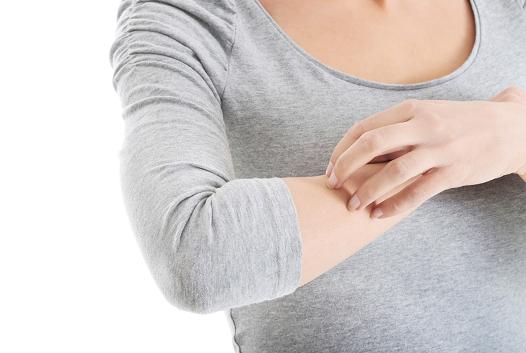Pruritus Symptoms, Causes, Diagnosis and Treatment

What Is Pruritus?
It is a skin condition wherein the person feels irritation or tingling in a particular skin area, causing an urge to scratch. Furthermore, itching can occur in a specific area or throughout your body.
What Causes Pruritus?
There are a number of triggers that causes itching, these include:
- Dry or aging skin.
- Sunburn.
- Hives.
- Contact irritants for example wool, chemicals or soaps.
- Contact dermatitis.
- Seborrheic dermatitis.
- Atopic dermatitis.
- Rashes.
- Allergic reactions.
- Liver disease with jaundice.
- Psoriasis.
- Superficial skin infections for example impetigo and folliculitis.
- Insect stings and bites.
- Childhood infections for example measles or chickenpox.
- Iron deficiency anemia.
- Pregnancy.
- Kidney disease.
- Hepatitis.
- Reaction to substances and medications.
What Are The Symptoms Of Pruritus?
Pruritis can either target small areas of your body for example leg or arm, or can cause itching in your entire body’s skin. In some instances, pruritus may not cause any other noticeable symptom besides an itchy skin, whereas in others, itchy skin may accompany:
- Blisters, spots or bumps.
- Redness.
- Scaly or leathery skin texture.
- Cracked, dry skin.
At times, itchiness tend to be intense and last for a prolong period of time. The more you rub the area, the more it becomes itchier.
What Are The Potential Complications Of Pruritus?
Of course, an itching can be discomforting. As mentioned earlier, intensity of itching redoubles by prolonged scratching due to irrepressible itching. Such can lead to:
- Scarring.
- Infection.
- Skin injury.
All in all, pruritus can affect your quality of life.
How Is Pruritus Diagnosed?
During your visit, the doctor will thoroughly examine the affected skin. In case he doubts an underlying condition for sourcing the itching, the doctor can recommend the following:
- Blood test: by means of complete blood count, the doctor can identify the underlying health condition rooting the itch, for instance iron deficiency.
- Thyroid function test: abnormalities related to thyroid may lead an itchy skin.
- Chemistry profile: the specific test is conducted for ruling out a kidney or liver disorder.
- Chest X-rays: by means of radiography, the doctor can identify enlarged lymph nodes, a disease linked with pruritus.
How Is Pruritus Treated?
After your doctor manages to identify the cause of pruritus, he will then look forward to prepare a treatment plan for you. In case he spots an underlying disease causing the itchy skin, he will focus to treat the disease, which will eventually result in easing the itch.
Few treatment options of pruritus include:
- Medications: calcineurin inhibitors, corticosteroid creams, oral antihistamines, antidepressants.
- Light therapy (phototherapy).
Home Remedies:
In order to ease itching, one must attempt the following self-care measures:
- Use an anti-itch lotion or cream.
- Do not scratch the affected area.
- Reduce stress.
- Stay away from the substances that may root an allergic reaction or irritate the skin.
- Use a mild soap free of strong fragrances and dyes.
- Wear loose clothing made of cotton.
Related Articles :
Ecthyma Symptoms, Causes, Diagnosis and Treatment
Diaper Dermatitis Symptoms, Causes, Diagnosis and Treatment
Chronic Lymphocytic Leukemia Symptoms, Causes, Diagnosis and Treatment
Bartonellosis Symptoms, Causes, Diagnosis and Treatment
Measles Symptoms, Causes, Diagnosis and Treatment
Keratosis Pilaris Symptoms, Causes, Diagnosis and Treatment
Impetigo Symptoms, Causes, Diagnosis and Treatment
Idiopathic Thrombocytopenic Purpura Symptoms, Causes, Diagnosis and Treatment
Ichthyosis Vulgaris Symptoms, Causes, Diagnosis and Treatment
Seborrheic Keratosis Symptoms, Causes, Diagnosis and Treatment
Scleroderma Symptoms, Causes, Diagnosis and Treatment
Porphyria Symptoms, Causes, Diagnosis and Treatment
Polycythemia Vera Symptoms, Causes, Diagnosis and Treatment
Hidradenitis Suppurativa Symptoms, Causes, Diagnosis and Treatment
Hyperhidrosis Symptoms, Causes, Diagnosis and Treatment
Lichen Planus Symptoms, Causes, Diagnosis and Treatment
By : Natural Health News




